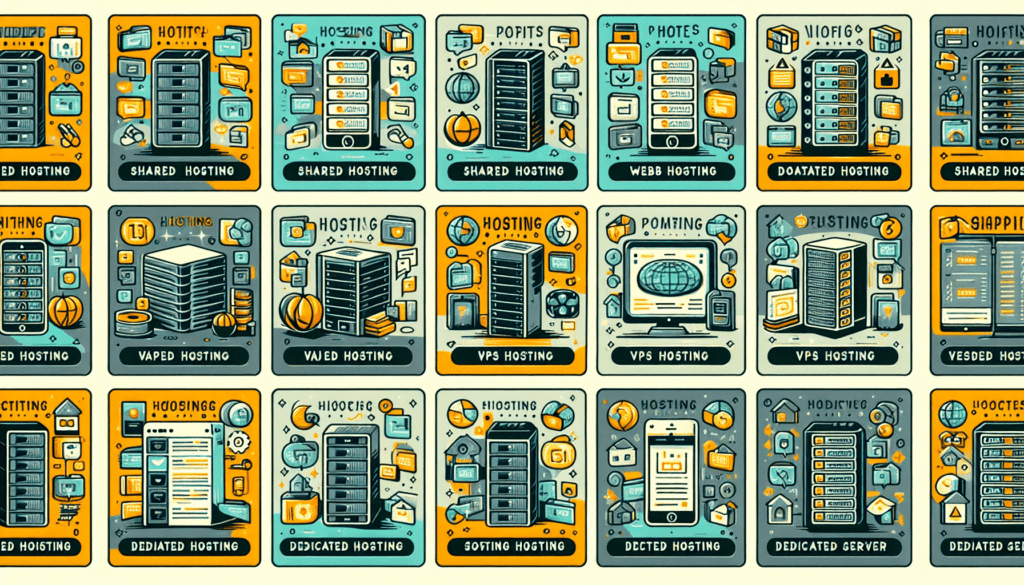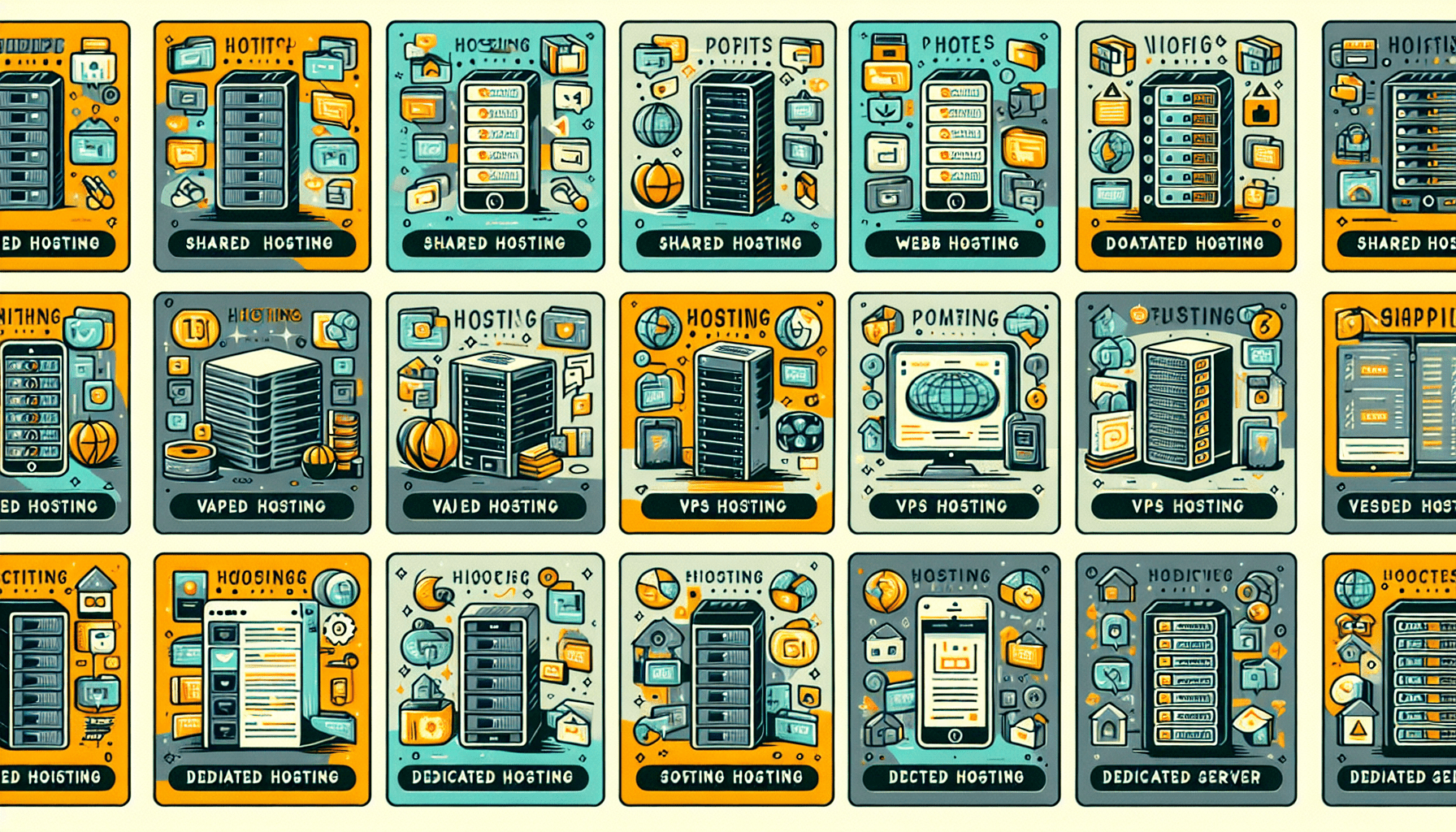Hello there! Are you feeling overwhelmed by all the web hosting options available for your business? Don’t worry, I’ve got you covered. In this article, we will discuss the essential factors to consider when choosing the right web hosting plan for your business. From understanding your business needs to comparing different hosting providers, you’ll be equipped with the knowledge to make an informed decision. Let’s dive in and find the perfect web hosting plan for you! Hey there! Are you looking to take your business online but feeling overwhelmed by the number of web hosting options available? Don’t worry, I’ve got you covered. In this guide, I’ll walk you through how to choose the right web hosting plan for your business. Let’s dive in!
Understanding Your Business Needs
Before you start searching for the perfect web hosting plan, it’s essential to understand your business needs. Are you an e-commerce store with high traffic volumes? Or maybe a small blog attracting a modest audience? Knowing your requirements will help narrow down your choices and ensure you find a plan that meets your needs perfectly.
Start by asking yourself questions like:
- How much web traffic do you expect?
- What type of content will you be hosting?
- Do you need advanced technical features?
Understanding your business needs is the first step in selecting the right web hosting plan.
Types of Web Hosting Plans
When it comes to web hosting, there are several types of plans to choose from. Each has its own set of features, advantages, and pricing. Here are some of the most common types of web hosting plans:
- Shared Hosting: Ideal for small websites and blogs with low to moderate traffic. Your website shares server resources with other websites.
- VPS Hosting: Offers more control and dedicated resources compared to shared hosting. Suitable for growing websites with moderate traffic.
- Dedicated Hosting: Provides dedicated server resources for your website. Perfect for large e-commerce sites or websites with high traffic volumes.
- Cloud Hosting: Utilizes multiple servers to host your website, offering scalability and reliability. Suitable for businesses expecting fluctuating traffic levels.
By understanding the different types of web hosting plans, you can find the one that best suits your business needs.

Assessing Technical Requirements
Once you’ve identified your business needs and explored the types of web hosting plans available, it’s time to assess your technical requirements. Consider the following technical aspects when choosing a web hosting plan:
- Server Uptime: Ensure the hosting provider guarantees a high server uptime percentage to minimize website downtime.
- Storage and Bandwidth: Determine the amount of storage and bandwidth required to host your website’s content and handle traffic volume.
- Scalability: Choose a web hosting plan that allows you to easily scale resources as your business grows.
- Security Features: Look for hosting providers that offer robust security features like SSL certificates, DDoS protection, and regular backups.
Assessing your technical requirements will help you choose a web hosting plan that can support your website effectively.
Evaluating Hosting Provider Reputation
A crucial factor to consider when selecting a web hosting plan is the reputation of the hosting provider. A reliable and reputable hosting provider can ensure your website runs smoothly and securely. Here are some ways to evaluate a hosting provider’s reputation:
- Read Customer Reviews: Look for reviews from current or past customers to get an insight into the hosting provider’s performance and customer service.
- Check Uptime Guarantee: A hosting provider that offers a high uptime guarantee is more likely to deliver consistent performance.
- Review Support Services: Ensure the hosting provider offers excellent customer support, preferably 24/7, to assist you with any technical issues.
Choosing a reputable hosting provider is essential for the success of your website.

Comparing Pricing and Features
When comparing web hosting plans, it’s essential to consider both pricing and features offered by different hosting providers. While pricing is an important factor, don’t forget to prioritize the features that align with your business needs. Here’s how to compare pricing and features effectively:
- Price: Compare the pricing of different web hosting plans, keeping in mind your budget and long-term business goals.
- Features: Consider the features included in each plan, such as storage, bandwidth, SSL certificates, and customer support.
- Promotional Offers: Look out for any promotional offers or discounts that hosting providers may offer for new customers.
By evaluating pricing and features, you can find a web hosting plan that offers the best value for your business.
Understanding Technical Support
Technical support is an essential aspect of web hosting, especially if you’re not tech-savvy. When choosing a web hosting plan, consider the level of technical support offered by the hosting provider. Here are some factors to consider regarding technical support:
- Support Channels: Check if the hosting provider offers support through multiple channels, such as live chat, email, or phone.
- Response Time: Evaluate the average response time for technical support inquiries to ensure quick resolution of issues.
- Expertise: Ensure the technical support team is knowledgeable and experienced in resolving a wide range of technical issues.
Having reliable technical support is crucial for maintaining the performance and security of your website.
Making an Informed Decision
Now that you have a better understanding of how to choose the right web hosting plan for your business, it’s time to make an informed decision. Take the time to research different hosting providers, compare pricing and features, and assess your business needs carefully. By following these steps, you can select a web hosting plan that meets your requirements and supports your online presence effectively.
Remember, choosing the right web hosting plan is a crucial decision for your business’s online success. Invest the time and effort into finding a hosting provider that aligns with your goals and requirements. Happy hosting!







